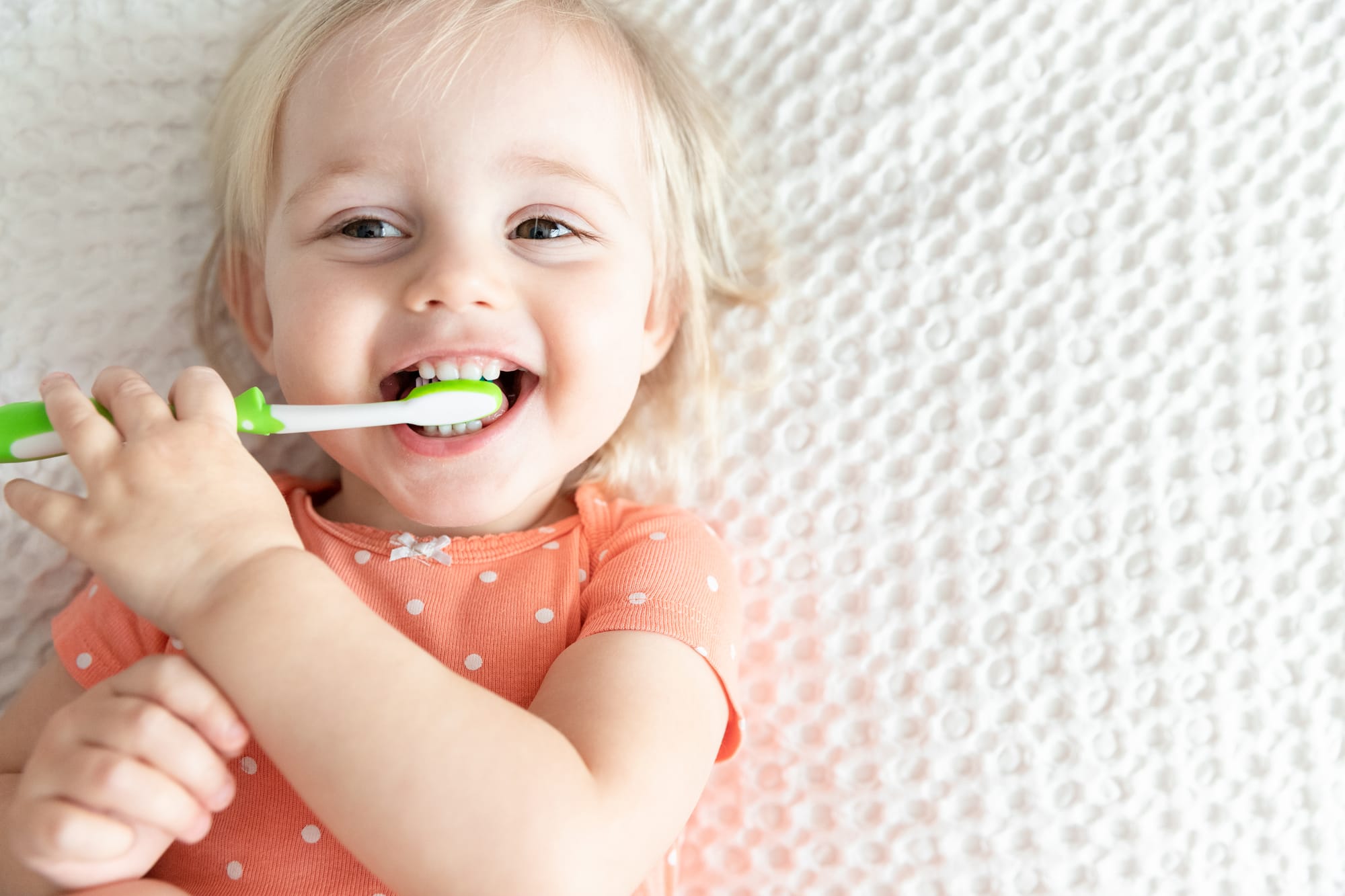Oral health

To promote good oral health in children we have used the advice below from the NHS website.
It's important to use a fluoride toothpaste, as this helps prevent and control tooth decay.
Children aged up to 3 years•
Start brushing your baby's teeth as soon as the first milk tooth breaks through (usually at around 6 months, but it can be earlier or later).
Parents or carers should brush or supervise toothbrushing.•
Brush teeth twice daily for about 2 minutes with fluoride toothpaste.•
Brush last thing at night before bed and on 1 other occasion.•
Use children's fluoride toothpaste containing no less than 1,000ppm of fluoride (check label) or family toothpaste containing between 1,350ppm and 1,500ppm fluoride.•
Use only a smear of toothpaste.•
Make sure children don't eat or lick toothpaste from the tube.
Children aged 3 to 6 years
Brush at least twice daily for about 2 minutes with fluoride toothpaste.•
Brush last thing at night before bed and at least on 1 other occasion.•
Brushing should be supervised by a parent or carer.•
Use children's fluoride toothpaste containing no less than 1,000ppm of fluoride (check label) or family toothpaste containing between 1,350ppm and 1,500ppm fluoride.•
Use only a pea-sized amount of toothpaste.•
Spit out after brushing and don't rinse – if you rinse, the fluoride won't work as well.
Can I let my child have sweets?Most children want sweets, but you can help to prevent problems by making sure they don't have a large amount or very often, and particularly not before bed, when saliva flow lessens. What are the best snacks to give my child?The best snacks are fruit and raw vegetables. Try tangerines, bananas, pieces of cucumber or carrot sticks. Other good snacks include toast, rice cakes and plain popcorn. Dried fruit is high in sugar and can be bad for teeth, so only ever give it to children with meals – for instance, as a dessert – and never as a snack between meals.
Should I let my child have fizzy drinks?No. Fizzy drinks can contain large amounts of sugar, which will increase the risk of tooth decay. Fizzy drinks (both those containing sugar and sugar-free or "diet" versions) also contain acids that can erode the outer surface of the tooth.
What are the best drinks for my child's teeth?The best drinks for children over 1 year old are plain still water or plain milk. Your child should have full-fat milk (whole milk) from the age of 12 months to 2 years. Semi-skimmed milk can be introduced from the age of 2, as long as your child is a good eater and growing well for their age. Skimmed milk can be given to children aged 5 and over.
Is it OK to drink fruit juice or smoothies?Even unsweetened juices and smoothies contain sugars and acids, so although they can contribute towards their 5 A Day, restrict your child to no more than 1 small glass (about 150ml) of fruit juice or smoothie each day and only at mealtimes. If your child is thirsty, it's better to give them water than to encourage a taste for sweet drinks.
Will milk at bedtime damage my child's teeth?Teeth are at most risk at night because there's less saliva in the mouth to protect them.Water is the best drink to give at bedtime, but if you do give milk, don't add anything to it. Chocolate-flavoured drinks and milkshake powder usually contain sugars, which will increase the risk of decay.
Are sugar-free medicines better for my child's teeth?Yes. Always ask if a sugar-free medicine is available and remind your doctor about this if you're being given a prescription for your child. This is especially important if your child is taking long-term medication.
When should my child give up bottles?Your child should begin moving off the bottle and on to a free-flow feeder cup at 6 months. Try to get them off bottles completely by the age of 1, because the teats and spouts encourage children to suck for long periods of time, meaning the drinks that cause tooth decay stay in contact with your child's teeth for a long time.
Are sippy cups good for teeth?There's no need for a child to use a sippy cup. They're similar to a bottle in that they require the child to suck to make them work. A free-flow feeder cup is better, as it doesn't have valves and the flow of liquid is unrestricted. This means that children learn to drink normally rather than by sucking.
Will a dummy or thumb sucking harm my child's teeth?No, but they will encourage an open bite, which is when teeth move to make space for the dummy or thumb. They may also affect speech development. That's why you should avoid using dummies after your child reaches 12 months old. Thumb sucking won't cause permanent problems as long as the habit stops by the time your child gets their second teeth, but it can be a hard habit to break. Discourage your children from talking or making sounds with their thumb or a dummy in their mouth, and don't dip dummies in anything sweet, such as sugar or jam.